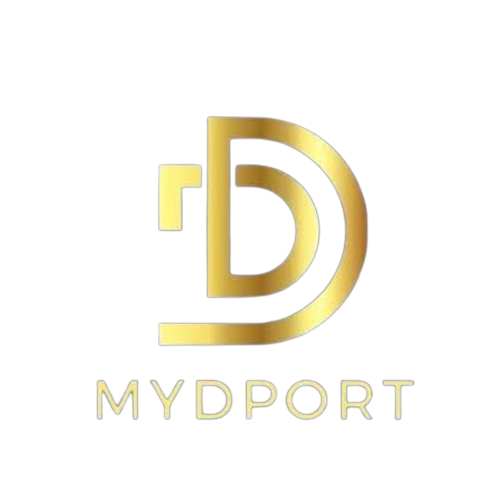Today's 2022 Recommended Textbooks for NECO GCE Chemistry Practical Exam are now available. Get Free NECO GCE Questions and Answers. This paper is scheduled to hold on Wednesday 1st December 2021. Chemistry Paper I (Alternative to Practical) 2.00 pm – 4.00 pm.
In this article, I will give you free access to all the verified NECO GCE 2022 chemistry Practical questions and answers, past questions, likely questions, and samples which will help you practice and get ready for the examination. Keep reading.
If you're looking for the correct chemistry Practical answers for this exam, do well to save this page and visit later. It will be posted here 3 hours before your exam for free. You can also subscribe to our latest post.
NECO GCE Chemistry Practical Questions and Answers 2022
Candidates for the Neco chemistry practical will get the usual apparatus and reagents for qualitative work. The Neco chemistry practical reagents will include;
(i) Dilute sodium hydroxide solution
(ii) Dilute ammonia solution
(iii) Dilute hydrochloric acid
(iv) Dilute trinitrate(V)acid
(v) Distilled water
(vi) Red and blue litmus paper
(vii) Potassium hexacyanoferrate(III)
(viii) silver trinitrate(V)
(ix) Methyl orange
ALSO SEE: JAMB Recommended Textbooks for English Language 2023/2024
The NECO Chemistry Practical apparatus are as follows;
(a) one boiling tube.
(b) Five test tubes.
(c) Filtration apparatus.
(d) source of heat.
Each candidate should be supplied with the following An, Bn, Cn. Where “n” is the candidate’s serial number. 150cm³ of hydrochloric acid solution in a bottle labeled “An”. The acid solution which should be the same for all candidates will contain 12.0cm³ of concentrated hydrochloric acid per dm³ of solution.
150cm³ of sodium trioxocarbonate(IV)solution in a bottle labeled “Bn”. The solution which should be the same for all candidates will contain 6.36g of sodium trioxocarbonate(IV) per dm³ of solution. One spatula of iron(II)chloride salt in a specimen bottle labeled Cn.
SEE ALSO:
Nov/Dec NECO GCE Physics Practical Questions and Answers
NECO Chemistry Obj/theory Questions and Answers
WAEC Chemistry Practical questions and answers
NECO GCE Chemistry Practical possible questions 2021
QUESTION 1: In an experiment, 20.0cm3 portions of 0.065 mol dm-3 NaOH were titrated against dilute HCl. The table below shows the results of the titration;
| Burette readings {cmt] | 1st | 2nd | 3rd |
| Final reading [cm-] | 23.50 | 46.60 | 47.40 |
| Initial reading [cmt) | 0.00 | 23.50 | 24.00 |
| The volume of acid used | 23.50 | 23.10 | 23.40 |
(a) (i) Name a suitable indicator for titration. Give a reason for your answer.
(ii) Give the color of the indicator in the base and at the endpoint.
(iii) What type of reaction is demonstrated by the experiment?
(b) (i) Write a balanced equation for the reaction
(ii) Determine the average volume of acid used.
(c) Calculate the (i) concentration of the acid in mol dm-3
(ii) concentration of the acid in g dm-3
(iii) mass of HCl in 20cm3 of solution [H = 1.00, Cl = 35.5 ]
SEE ASLO : NECO GCE Schedule Timetable for SSCE External Candidates in 2022 (Nov/Dec)
QUESTION 2: C was a mixture of inorganic salt and an organic compound. Tests were carried out on C.
Copy and complete the table and hence state what C could be.
| Test | Observation | Inference | ||
| (a) (i) | C + 10cm3 of distilled | C partially dissolved | ||
| water, stirred and filtered | to give colourless | |||
| filtrate and a white | ||||
| residue | ||||
(in | Filtrate + Litmus paper | Neutral filtrate | ||
(b) | (i) | First portion of filtrate + | ||
| AgN03(aq) | ||||
| +HN03(aq) | ||||
| +NH3(aq) | Cl- confirmed | |||
(ii) | Second portion of filtrate | White gelatinous | ||
| + NaOH(aq) in drops | precipitate | |||
| then in excess | Precipitate dissolved | |||
(iii) | Third portion of filtrate | White gelatinous | ||
| + NH3(aq) in drops | precipitate | |||
| then in excess | Precipitate dissolved | |||
(c) | (i) | Portion of residue + | Starch present | |
| Iodine solution | ||||
(ii) | Portion of residue + | Starch | ||
| HCl(aq) and boil | hydrolysed | |||
| cool and add iodine | ||||
| solution | ||||
QUESTION 3: (a) Outline how a mixture of ammonium chloride, potassium chloride and lead (II) chloride could be separated in the laboratory.
(b) Name one drying agent that is
(i) solid,
(ii) liquid
(c) Mention one laboratory apparatus used for:
(i) preparing a standard solution;
(ii) converting vapour to liquid;
(iii) keeping solid samples dry;
(iv) generating gases intermittently;
(v) determining the pH of a solution. [5 marks]
(d) (i) Describe a chemical test that could be used to distinguish between pure water and sodium tetraoxosulphate(VI)solution
(ii) Zn(OH)2 and Ca(OH)2 are white substances What reagent would be suitable to distinguish between the two substances?
Watch video:
Disclaimer: The questions and answers above are not expos for the chemistry GCE Practical. They are NECO GCE chemistry past and likely questions and answers meant for your to practice.


